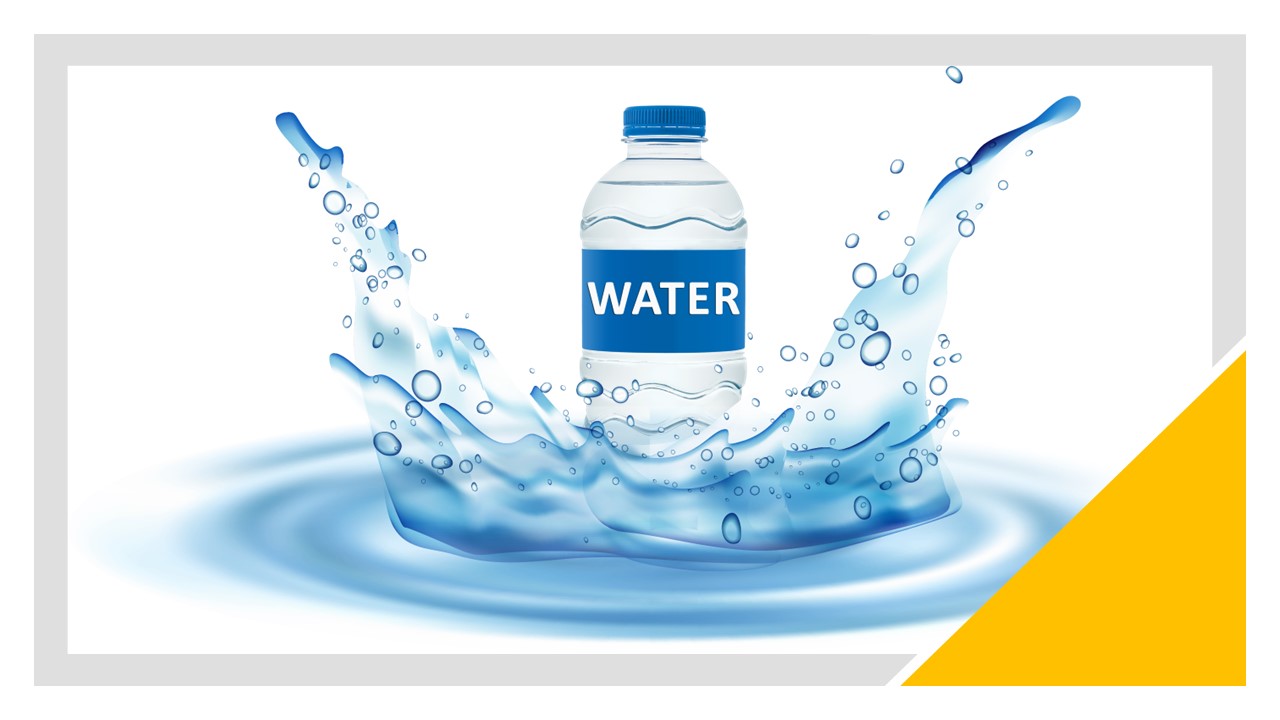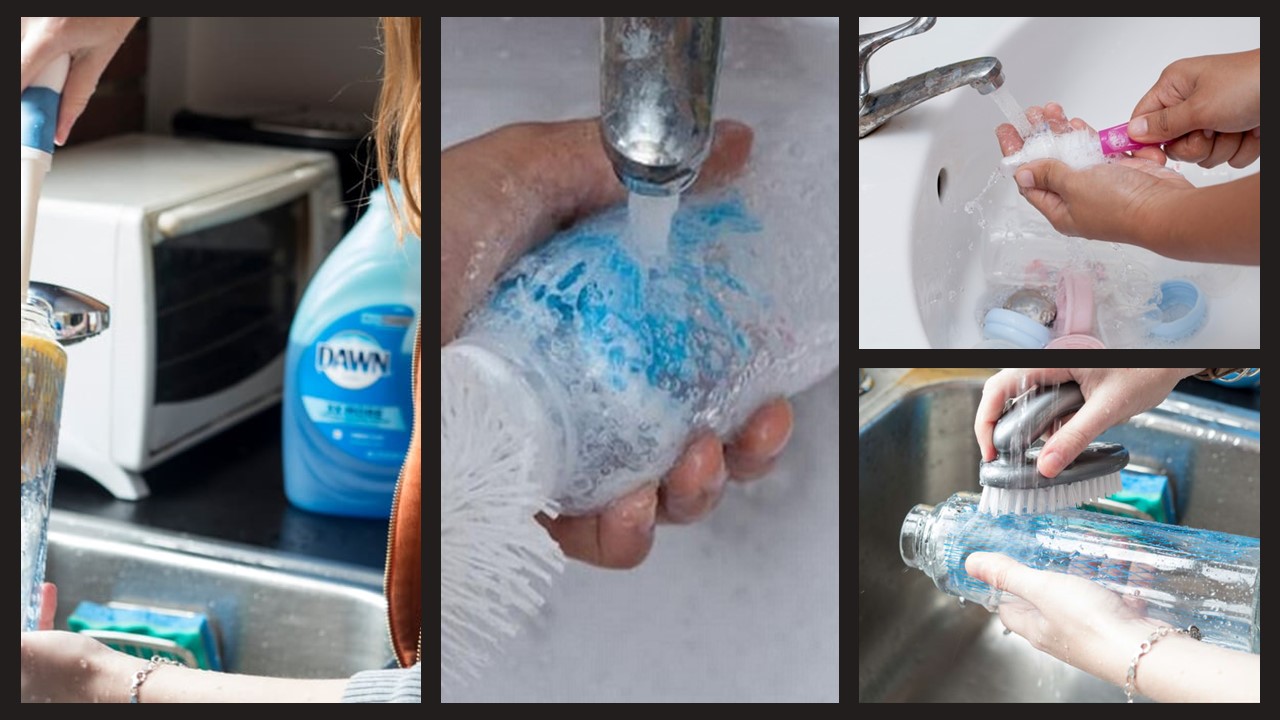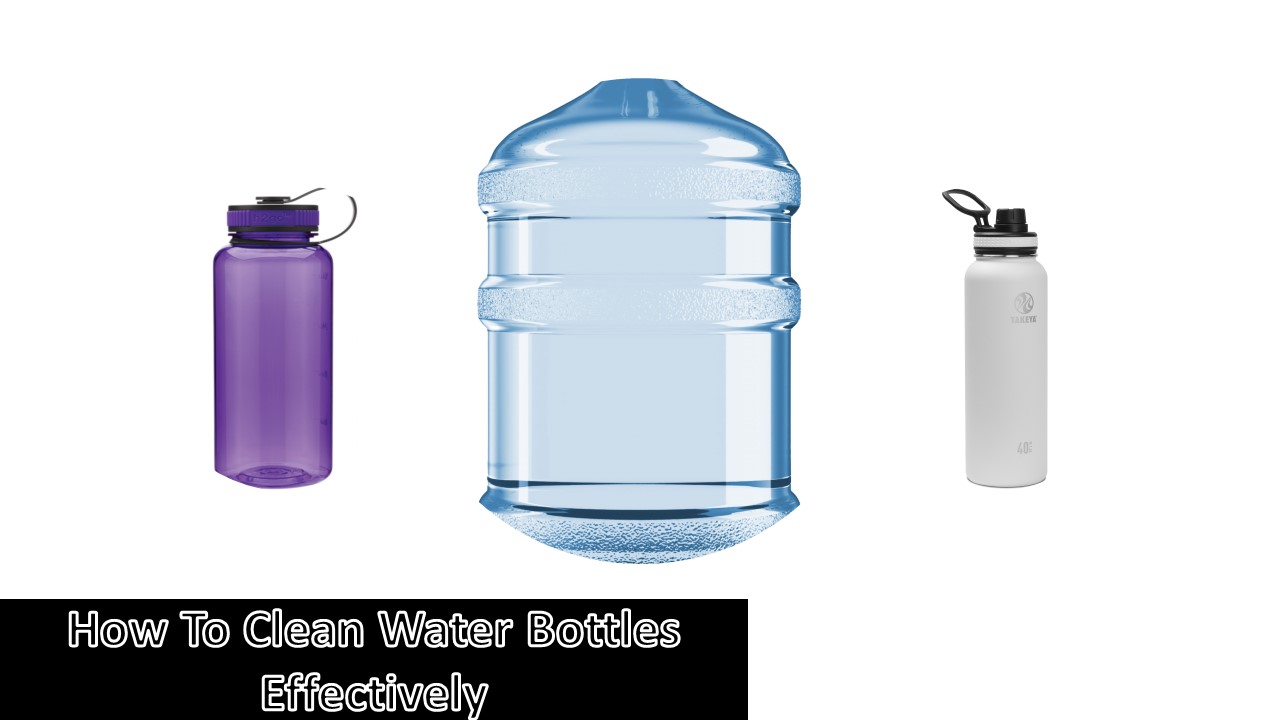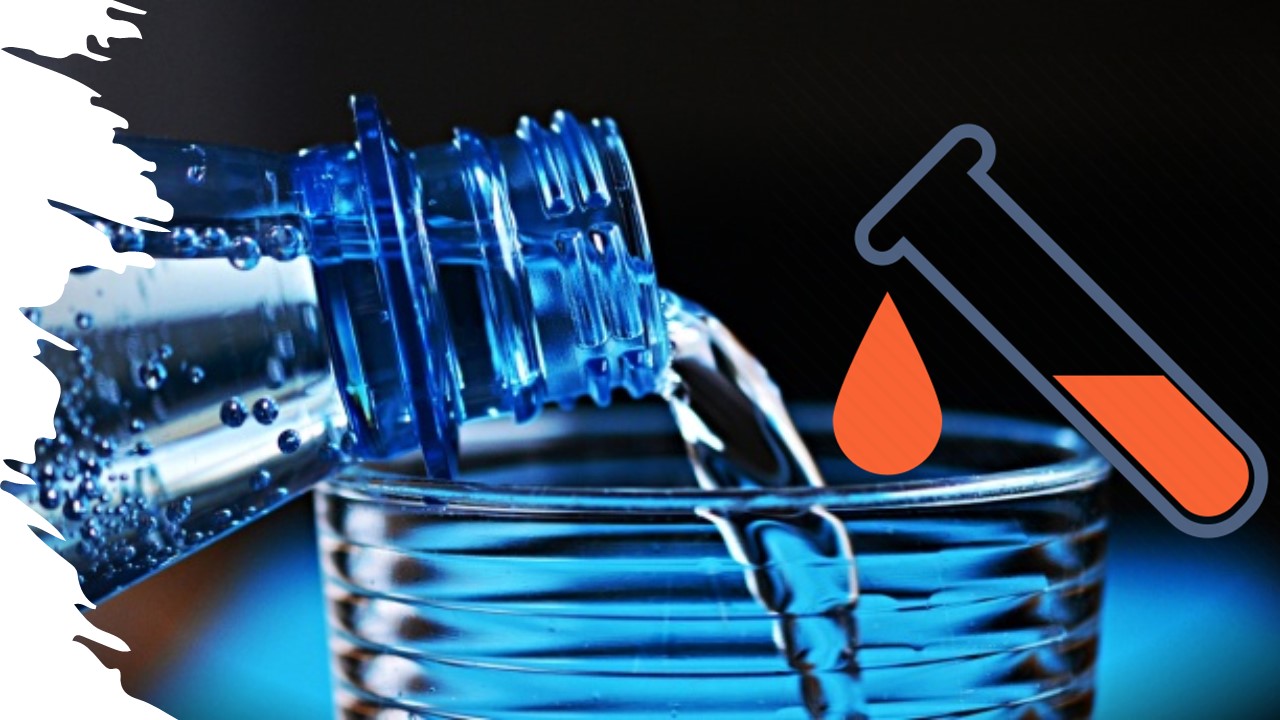Why Does My Water Bottle Smell Like Rotten Eggs – Unraveling the Mystery
Are you looking for an answer to the question “Why does my water bottle smell like rotten eggs?” if you have ever taken a sip of water from your reusable water bottle only to be hit with a pungent smell of rotten eggs, It’s not just your imagination.
Recent research from US-based waterfilterguru dot com discovered that reusable bottles can harbor 40,000 times more bacteria than the average toilet seat. That can cause a foul odor, including the infamous rotten egg smell. But why do some water bottles develop this unpleasant odor, while others don’t?
Fortunately, there are practical solutions to eliminate the odor and prevent it from returning. In this article, we’ll explore the causes of the rotten egg smell in water bottles, its potential health implications, and provide you with actionable tips to get rid of it for good. So, read on.
Why Does My Water Bottle Smell Like Rotten Eggs
There are several causes of the rotten egg smell in water bottles. Understanding these causes can help you prevent and eliminate the odor. Here are some of the most common causes for “Why Does My Water Bottle Smell Like Rotten Eggs“:
1. Mineral Content
Some water sources contain sulfur-containing minerals, which can react with bacteria to produce hydrogen sulfide. This gas can then permeate the water and cause a foul odor that smells like rotten eggs.
Hydrogen sulfide gas (H2S) is often the culprit behind the “rotten egg” taste or odor in water due to its distinct and unpleasant odor that closely resembles the smell of rotten eggs.
H2S gas can dissolve in water, particularly in well water, where it can come into contact with sulfur-containing minerals in the ground, resulting in the production of the gas.
When consumed, the gas can cause nausea, dizziness, and gastrointestinal issues. Therefore, it’s essential to take steps to prevent and eliminate H2S gas in water to ensure safe and healthy hydration.
2. Bacterial Growth
Bacteria thrive in moist environments and can grow and multiply quickly when water is left sitting in a water bottle for an extended period of time. As bacteria grow, they can produce hydrogen sulfide gas, which has the distinct smell of rotten eggs.
3. Poor Cleaning And Maintenance
If a water bottle is not properly cleaned and maintained, it can become a breeding ground for bacteria. Over time, this can cause the water bottle to develop a foul odor that smells like rotten eggs.
4. Plastic Breakdown
If a plastic water bottle is exposed to high temperatures or sunlight, it can cause the plastic to break down and release chemicals into the water. This can cause the water to have a foul odor that resembles the smell of rotten eggs.
Understanding the causes of the rotten egg smell in water bottles can help you take steps to prevent and eliminate the odor.
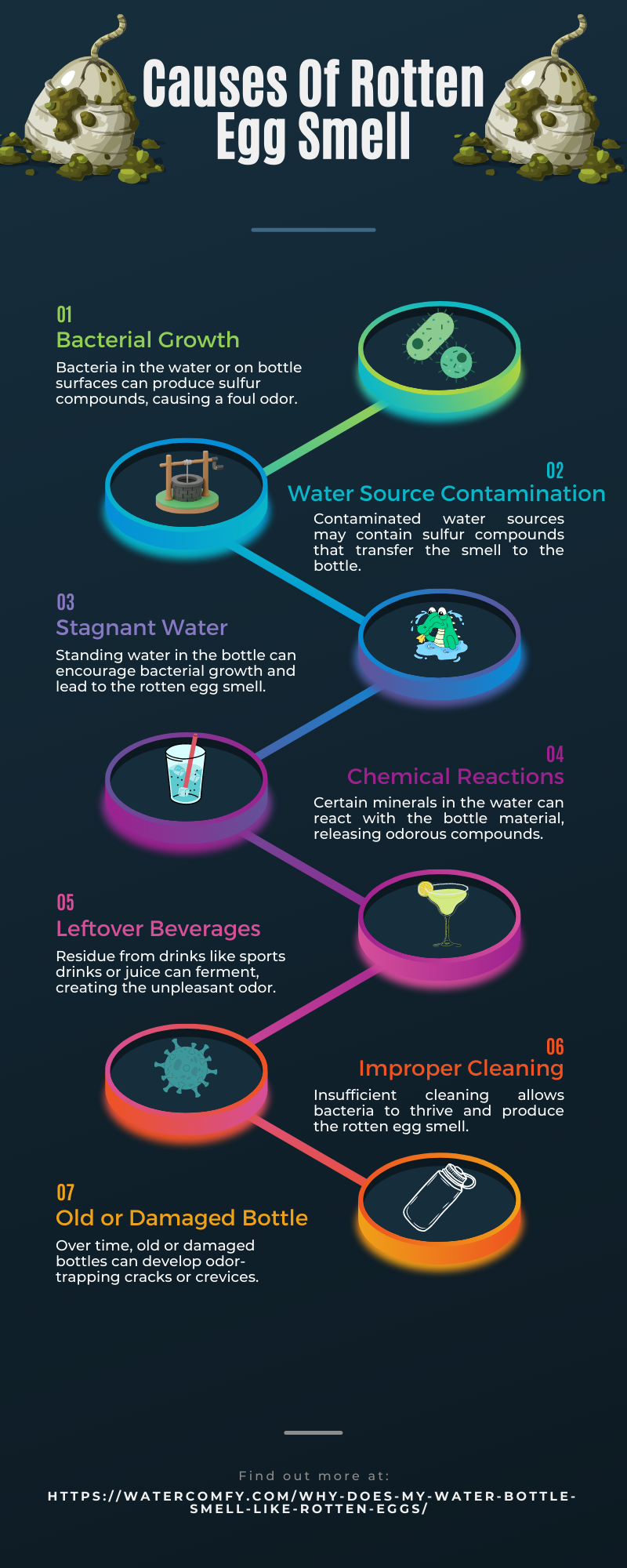
Health Implications Of Drinking Water from Water Bottle That Smell Like Rotten Eggs
The rotten egg smell in water bottles is often associated with the presence of hydrogen sulfide gas, which can occur due to bacterial contamination or other sources. Drinking water with this foul odor can have various health implications, including:
1. Nausea and vomiting: Hydrogen sulfide gas can cause nausea and vomiting when ingested. This is because the gas can irritate the stomach lining and cause inflammation.
2. Gastrointestinal problems: Drinking water with a rotten egg smell can cause a range of gastrointestinal problems, including diarrhea, cramps, and bloating.
These symptoms can occur because the hydrogen sulfide gas can disrupt the balance of bacteria in the gut and cause an overgrowth of harmful bacteria.
3. Headaches and dizziness: Hydrogen sulfide gas can cause headaches and dizziness, especially when inhaled in large amounts. These symptoms may occur when drinking water with a strong rotten egg smell.
4. Respiratory problems: Inhaling high concentrations of hydrogen sulfide gas can also cause respiratory problems, such as difficulty breathing, coughing, and chest tightness.
While drinking water with a rotten egg smell may not cause significant respiratory problems, inhaling the gas could pose a risk.
5. Neurological symptoms: In rare cases, exposure to high levels of hydrogen sulfide gas can cause neurological symptoms, such as seizures and loss of consciousness. However, it is unlikely that drinking water with a rotten egg smell would cause such severe symptoms.
How To Get Rotten Egg Smell Out Of My Water Bottle (Why Does My Water Bottle Smell Like Rotten Eggs)
If you’re dealing with a rotten egg smell in your water bottle, here are some effective ways to get rid of the odor:
1. Use Baking Soda
Add 2 tablespoons of baking soda to your water bottle, fill it with hot water, and shake it vigorously. Let it sit for a few hours before rinsing it thoroughly with hot water.
2. Use White Vinegar
Fill your water bottle with equal parts of hot water and white vinegar, shake it, and let it sit for at least an hour. Rinse it thoroughly with hot water before using it.
3. Use Lemon Juice
Squeeze fresh lemon juice into your water bottle and fill it with hot water. Let it sit for a few hours before rinsing it thoroughly with hot water.
4. Use Hydrogen Peroxide
Soak the water bottle in hydrogen peroxide for a few hours. Scrub the inside with a bottle brush and shake it vigorously. Rinse it thoroughly with hot water and allow it to air dry before using it.
5. Water Bottle Cleaning Tablets
These tablets are specifically designed to clean water bottles and remove odors. They usually contain a mix of cleaning agents and disinfectants, making them an effective solution for eliminating bacteria and odors.
6. Activated Charcoal
Activated charcoal is a natural deodorizer and can help absorb odors from your water bottle. You can either purchase activated charcoal packets designed for use in water bottles or use a piece of activated charcoal from a health food store.
7. UV-C Light Wand
UV-C light is known to be effective at killing bacteria and viruses. You can use a UV-C light wand to sterilize the inside of your water bottle and eliminate any foul odors. You can also buy UV-C light water bottles.
8. Vinegar And Baking Soda
If you prefer a natural cleaning solution, you can try using a mixture of vinegar and baking soda. Simply add 2 tablespoons of baking soda to your water bottle, followed by a cup of white vinegar. Let the mixture sit for a few hours, shake vigorously and then rinse thoroughly with hot water. Let it air dry.
9. Water Filter
A water filter can help remove any impurities or minerals that may be contributing to the foul odor in your water bottle. Consider investing in a quality water filter to ensure that your water is clean and fresh tasting.
Remember to always rinse your water bottle thoroughly with hot water after using any of these methods to remove the rotten egg smell. Additionally, make sure to clean your water bottle regularly and store it properly to prevent the development of odor in the future.
Best Odor-Resistant Water Bottles
Odor-resistant water bottles like Ion8 and Under Amour are your solution to fresh, clean hydration. Designed with innovative materials, odor-resistant water bottles keep unpleasant smells at bay, ensuring every sip is refreshing and pure.
Say goodbye to funky odors and hello to a bottle that keeps up with your active lifestyle, day after day. Hydrate with confidence and enjoy the benefits of a water bottle that stays as fresh as your thirst for adventure.
Product Image | Product Name | Key Features | Rating | Price |
| ||||
| ||||
| ||||
| ||||
| ||||
| ||||
| ||||
| ||||
| ||||
|
Alternative Solutions For Those Who Cannot Eliminate The Rotten Egg Smell
If you’ve tried cleaning your water bottle thoroughly but still can’t get rid of the rotten egg smell, there are alternative solutions you can try:
1. Use A Different Type Of Water Bottle
If you’re using a plastic water bottle, consider switching to a stainless steel or glass bottle. These materials are less likely to absorb odors and can be easier to clean. Additionally, many stainless steel and glass bottles are insulated, which can help keep your water cooler for longer periods.
Pros: Stainless steel and glass bottles are durable, easy to clean, and less likely to absorb odors than plastic bottles.
Cons: Stainless steel and glass bottles can be more expensive than plastic bottles and may not be as lightweight or portable.
2. Opt For A Hydration Pack
A hydration pack is a backpack or waist pack with a built-in water reservoir and tube for easy drinking on the go.
Pros: Hydration packs are hands-free, making them ideal for outdoor activities like hiking, biking, or running. They can also be easier to clean than traditional water bottles, and many models have additional storage space for essentials like keys or snacks.
Cons: Hydration packs can be more expensive than water bottles, and some models may be more challenging to clean or require more maintenance.
Ultimately, the best alternative solution for you will depend on your personal preferences and needs. Consider the activities you’ll be doing, how often you’ll use the bottle or pack, and your budget when deciding which alternative solution to try.
How To Deep Clean Your Water Bottle To Remove All Kinds Of Smell
Deep cleaning your water bottle is important to get rid of any bacteria or residue that regular cleaning may have missed. Here are the steps you can follow to deep clean your water bottle:
- Disassemble the bottle: If your water bottle has any removable parts, such as a lid or straw, disassemble them to ensure that all parts are thoroughly cleaned.
- Create a cleaning solution: Mix equal parts of hot water and white vinegar in a bowl.
- Soak the bottle: Submerge the water bottle and its parts in the cleaning solution and let it soak for at least an hour. If the bottle has a strong odor, you can add 2 tablespoons of baking soda to the cleaning solution.
- Scrub the bottle: After soaking, use a bottle brush or sponge to scrub the inside of the bottle and its parts, paying special attention to any hard-to-reach areas. If the bottle has any stains, you can sprinkle some baking soda onto the brush or sponge and scrub it.
- Rinse the bottle: Rinse the bottle and its parts thoroughly with hot water to remove any residue from the cleaning solution.
- Air dry: Allow the bottle and its parts to air dry completely before reassembling and using it.
It’s recommended to deep clean your water bottle every one to two weeks, or more frequently if you use it frequently or notice a strong odor or buildup.
How To Prevent Rotten Eggs Smell In Water Bottles (Why Does My Water Bottle Smell Like Rotten Eggs)
Preventing and eliminating the rotten egg smell in water bottles is essential for ensuring safe and clean drinking water. Here are some practical solutions that you can use to prevent and eliminate the odor:
- Use a water filter: A water filter can help remove sulfur and other contaminants from your water source, preventing the development of the rotten egg smell in your water bottle.
- Clean the bottle regularly: Regular cleaning is essential for preventing the growth of bacteria and the development of foul odors in your water bottle. Use warm, soapy water and a bottle brush to clean your water bottle after every use.
- Use bottled or distilled water: If your water source has high levels of sulfur or minerals, consider using bottled or distilled water to fill your water bottle. This can help prevent the development of the rotten egg smell.
- Store the bottle properly: When not in use, store your water bottle in a cool, dry place. Avoid leaving it in direct sunlight or in warm or humid environments, as this can promote bacterial growth.
- Replace the bottle when necessary: Over time, water bottles can develop cracks and crevices that can be difficult to clean, making them a breeding ground for bacteria. Replace your water bottle periodically to ensure that you’re drinking clean and safe water.
How To Avoid Getting Sick From A Smelly Water Bottle (Why Does My Water Bottle Smell Like Rotten Eggs)
To avoid getting sick from a smelly water bottle, follow these essential tips for proper cleaning and maintenance:
- Regular Cleaning: Wash your water bottle daily with warm, soapy water. Use a bottle brush to scrub the inside thoroughly, reaching all corners and crevices.
- Avoid Harsh Chemicals: Refrain from using harsh chemicals or bleach to clean your water bottle, as they may leave behind harmful residues or affect the taste of the water.
- Vinegar Solution: Periodically, disinfect your water bottle by filling it with a mixture of equal parts white vinegar and water. Let it sit for a few hours or overnight, then rinse thoroughly.
- Baking Soda Scrub: To remove stubborn odors, create a paste of baking soda and water and use it to scrub the interior of the bottle. Rinse thoroughly afterward.
- Dry Thoroughly: After washing, make sure to completely air dry the water bottle upside down with the cap off. This prevents moisture buildup, which can encourage bacterial growth.
- Store with Cap Off: Avoid storing the water bottle with the cap on when it’s not in use, as this can trap moisture and lead to odor-causing bacteria.
- Use Proper Storage: Store your water bottle in a cool, dry place away from direct sunlight. Avoid leaving it in a hot car or other areas where bacteria can thrive.
- Replace Bottle Regularly: If your water bottle develops persistent odors or you notice signs of wear and tear, it might be time to replace it with a new one.
- Choose Odor-Resistant Materials: Consider investing in a water bottle made from odor-resistant materials such as stainless steel or glass, as these are less likely to retain odors.
- Use a Water Filter: If the smell is coming from the water source, consider using a water filter to remove any impurities that could be causing the odor.
- Avoid Contaminated Water Sources: Be cautious about filling your water bottle from questionable sources, such as stagnant ponds or untreated water taps.
- Personal Use Only: Do not share your water bottle with others to prevent the spread of germs and bacteria.
- Check the Cap and Seal: Ensure the cap and sealing elements are clean and free from mold or mildew buildup. Replace damaged or worn-out seals promptly.
Common Misconceptions About Smelly Water Bottles (Why Does My Water Bottle Smell Like Rotten Eggs)
1. Misconception: Smelly water bottles are safe to use as long as the water tastes fine.
Reality: Foul-smelling water bottles may harbor bacteria and other microorganisms that can cause health issues, even if the water tastes okay. It’s crucial to address the source of the smell and properly clean the bottle to ensure safe usage.
2. Misconception: The smell in a water bottle is entirely harmless and can be ignored.
Reality: Ignoring a smelly water bottle can lead to the growth of harmful bacteria, mold, and mildew. Drinking from an unclean bottle can cause gastrointestinal issues and other health problems.
3. Misconception: Adding strong-smelling substances like essential oils will mask the bad odor in the water bottle.
Reality: While essential oils may temporarily mask the smell, they do not address the root cause of the odor. Moreover, some essential oils are not safe for ingestion, and using them inside a water bottle can be dangerous.
4. Misconception: Rinsing the water bottle with water is enough to keep it clean and odor-free.
Reality: A simple rinse might remove some residue, but it will not effectively eliminate odor-causing bacteria. Regular and thorough cleaning with soap and water is necessary.
5. Misconception: Smelly water bottles are only caused by bacteria.
Reality: While bacteria are a common cause of bad odors, other factors like chemical reactions with bottle materials, water source contaminants, or leftover beverages can also contribute to the smell.
6. Misconception: Smelly water bottles are a normal occurrence and happen to everyone.
Reality: While it’s true that water bottles can develop odors over time, a consistently smelly water bottle indicates inadequate cleaning and maintenance practices. Proper hygiene can prevent this issue.
7. Misconception: It’s sufficient to clean the bottle’s mouthpiece and not the entire bottle.
Reality: Neglecting to clean the entire bottle allows bacteria to thrive in hidden areas, leading to persistent odors and potential health risks. Cleaning the entire bottle, including the cap and seals, is essential.
8. Misconception: Storing water bottles in the refrigerator eliminates the need for regular cleaning.
Reality: Refrigerating water bottles may slow down bacterial growth, but it does not eliminate the need for cleaning. Bacteria can still develop in the bottle if it’s not cleaned properly.
9. Misconception: The smell is caused by the bottle material, and changing the bottle will solve the issue.
Reality: While certain materials may be more prone to retaining odors, changing the bottle alone won’t solve the problem if proper cleaning and maintenance practices are not followed.
10. Misconception: Boiling water inside the bottle will sanitize it and remove bad smells.
Reality: Boiling water in the bottle might not reach all areas where bacteria hide, and it can also damage the bottle material. Proper cleaning with soap and water is more effective.
Water Bottle Hydration Habit (Why Does My Water Bottle Smell Like Rotten Eggs)
Developing a water bottle hydration habit is crucial for maintaining good health and staying adequately hydrated throughout the day. Here are some tips to establish and maintain a successful water bottle hydration habit:
- Choose the Right Water Bottle: Invest in a water bottle that suits your lifestyle and preferences. Consider factors like size, material (e.g., stainless steel, glass, BPA-free plastic), and design (e.g., easy-to-carry, leak-proof).
- Set a Daily Hydration Goal: Determine the amount of water you need to drink each day based on your age, weight, activity level, and climate. Set a realistic hydration goal to aim for daily.
- Use a Reusable Bottle: Opt for a reusable water bottle to reduce waste and environmental impact. Having a reusable bottle encourages you to refill it and carry it with you wherever you go.
- Keep the Bottle Visible: Place your water bottle in a visible and easily accessible location, such as on your desk, in your bag, or on the kitchen counter. This visual reminder will prompt you to drink more water.
- Create a Schedule: Set specific times throughout the day to drink water. For example, you can have a glass of water upon waking up, before meals, and at regular intervals during the day.
- Use an App or Reminder: Use hydration reminder apps or set alarms on your phone to remind you to drink water regularly. Some apps can also track your water intake and notify you when it’s time to hydrate.
- Make Water Easily Available: Ensure you have access to water wherever you spend most of your time. Keep a filled water bottle at your workplace, in your car, and in common areas at home.
- Flavor Your Water: If plain water becomes monotonous, add natural flavors like slices of lemon, cucumber, mint, or berries. Infusing your water can make it more enjoyable to drink.
- Track Your Progress: Keep a water intake journal or use a hydration tracking app to monitor your daily water consumption. This can help you stay accountable and motivated.
- Pair Water Intake with Activities: Link drinking water to specific activities you do daily. For example, take a sip of water every time you answer an email or during commercial breaks while watching TV.
- Drink Before Thirst Strikes: Don’t wait until you feel thirsty to drink water. Thirst is a sign that your body is already mildly dehydrated. Make it a habit to drink water proactively.
- Replace Sugary Drinks: Substitute sugary beverages like soda, energy drinks, or sugary fruit juices with water. This not only promotes better hydration but also reduces unnecessary calories and sugar intake.
- Hydrate Before and After Exercise: Drink water before, during, and after exercise to maintain proper hydration levels during physical activity.
- Celebrate Milestones: Celebrate reaching your hydration goals by treating yourself to a healthy snack or a small reward. Positive reinforcement can help you stay committed to your habits.
Choosing The Right Water Bottle Material (Why Does My Water Bottle Smell Like Rotten Eggs)
Choosing the right water bottle material is essential for your hydration needs and overall well-being. Here are the popular water bottle materials and their features:
- Stainless Steel: Durable, BPA-free, and highly resistant to odors and stains. Stainless steel water bottles are great for keeping beverages hot or cold for extended periods. They are ideal for outdoor activities, sports, and everyday use.
- Glass: Provides a clean and pure taste without leaching any chemicals into the water. Glass bottles are environmentally friendly, recyclable, and easy to clean. However, they are more fragile and heavier compared to other materials.
- BPA-Free Plastic: Lightweight and budget-friendly, BPA-free plastic bottles are widely available. They are suitable for everyday use, but not recommended for hot liquids or extended exposure to the sun, as they may leach chemicals.
- Aluminum: Lightweight and recyclable, aluminum bottles are a good eco-friendly option. They often come with a protective inner coating to prevent metallic taste or chemical leaching.
- Collapsible Silicone: Extremely portable and space-saving, collapsible silicone bottles are ideal for travel or outdoor activities. They are lightweight and easy to store when not in use.
When choosing a water bottle material, consider factors like your intended use, insulation needs, environmental impact, and personal preferences. Each material has its advantages and limitations, so select the one that aligns best with your lifestyle and priorities.
The Bottom Line Why Does My Water Bottle Smell Like Rotten Eggs
So, why does my water bottle smell like rotten eggs? If you’re experiencing a rotten egg smell in your water bottle, it’s important to take action to eliminate the odor and prevent potential health risks.
By understanding the causes of the smell and following our tips for prevention and elimination, you can enjoy fresh-tasting and safe drinking water on the go.
Additionally, if you’re unable to eliminate the smell, we’ve provided alternative solutions to help you find the right water bottle or hydration pack for your needs. Remember, a clean and odor-free water bottle not only ensures the safety of your drinking water but also enhances your overall hydration experience.










